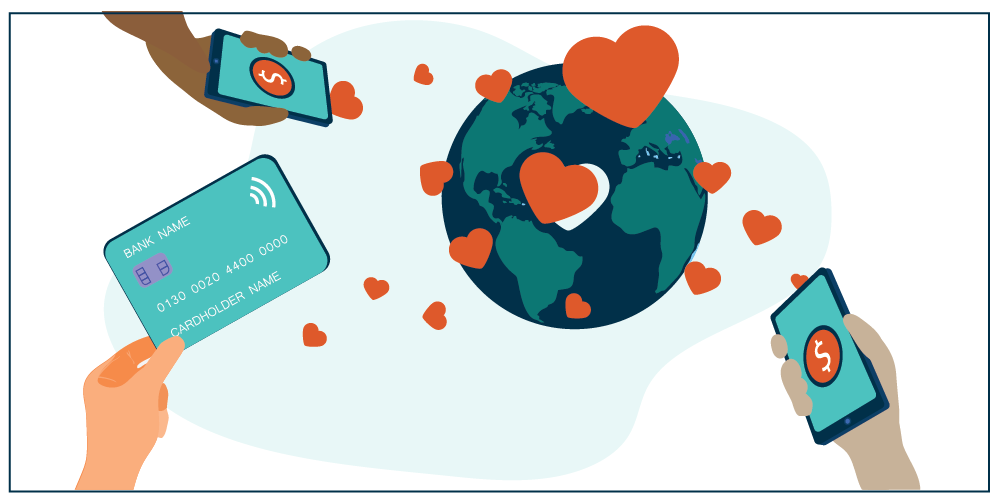Virtual Fundraising Tips: 3 Ways To Further Your Cause During Covid-19 and Beyond
-

Three months ago, you were planning your Gala. You had sent out invitations, the tables were filling up quickly and auction items had already arrived. Then the coronavirus happened and forced you to cancel. Now you're watching your budget and mission suffer greatly.
But just like the Ronald McDonald House Charities (RMHC), Tampa Bay, you can still salvage this situation. Lisa Suprenand, the organization's Executive Director, reveals that the nonprofit projected a loss of almost 1.1 million dollars when the crisis and lockdown started. To survive, RMHC, Tampa Bay needed a way to make lemonade out of lemons - and they found one: virtual fundraising.
Today, Suprenand's nonprofit has exceeded two-thirds of its annual goal, attracted 368 gifts for a new campaign (216 new), financed a feeding program which costs about $3000 - $5000 each week, and strengthened relationships with media and social influencers.
And you can do the same.
Hosting a virtual event now can raise the needed funds to keep operating. You can hold your in-person event later in the year when the crisis has reduced.
Three Tips to Enhance Any Virtual Fundraising Campaign
While you have a wide range of virtual fundraising types to choose from: virtual gala, online auction, peer to peer, virtual cooking, online gaming, virtual walk, virtual talent show, etc. you'll need to be really strategic with your planning if you want to succeed.
Here are three tips to improve your virtual fundraiser:
1. Leverage the power of success stories
Stories remain the most potent marketing and fundraising tool for nonprofits. By telling stories, you can speed up the donor acquisition process and reactivate lapsed donors. You can also recruit board members and secure grants.
This is why you must tell stories, in fact, lots of them when marketing your new virtual fundraiser. Talk about how you've changed lives. You can use testimonials, but case studies are very important.
Case studies are longer than testimonials. They provide context to success stories, reveal lesser-known problems, and, through human-interest lens, show how your nonprofit solved those problems. That's why they're highly believable, easy to digest, and can quickly convince donors and prospects of the urgent need for the virtual fundraising event.
Where should you use success stories? Everywhere. Use it at every stage of your marketing and fundraising. Use success stories on your event webpage, in emails, in social media updates, on radio, in a video, in press releases, etc.
2. Keep Sponsorships
Imagine canceling the in-person event but keeping all your sponsorship revenue. This is possible with a virtual event. Will sponsors be happy to support you online? Definitely. Here's why:
You're no longer limited to those who'll be physically present. This means you might have more participants.
Your event can take place over a few days and weeks, instead of a few hours. For sponsors, their logo will be on your website for a longer period of time, and you won't be charging them extra.
But that's not all. Nonprofits using virtual fundraising events can double their donations through matching gift opportunities. According to Double the Donation, some companies recently expanded their matching gift programs in response to the coronavirus crisis. Some of these companies are AbbVie, Apple, Caterpillar, and General Mills.
3. Embrace digital marketing
Digital marketing is an important part of virtual fundraising. If you don't have a digitally savvy employee, then consider hiring a freelance digital marketer through websites like LinkedIn, Upwork, and Fiverr to manage your online marketing campaign. If you have the budget. you can supplement these efforts with direct mail and radio advertising,
Be committed to the digital marketing process. Ensure that your marketer works closely with the fundraising team and they can easily access donor data. Ask staff and board members to be active on social media too. Put together a social media policy to guide everyone's activity.
Leverage success stories to get featured in the press. Work hard to become an industry expert by contributing opinions and advice on social, on popular blogs and in Q&A forums like Quora.
Finally, ensure that prospects have a seamless experience on your website.

This template controls the elements:
FOOTER: Footer Title, Footer Descriptions
CUSTOM MENU: Images and columns into header main menu submenu items
* This message is only visible in administrative mode
SUPPORT
800-438-6498 opt. 2
SALES
800.438.6498 opt. 1
LOCATION
MaestroSoft
1750 112th Avenue NE
Suite A200
Bellevue, WA 98004

